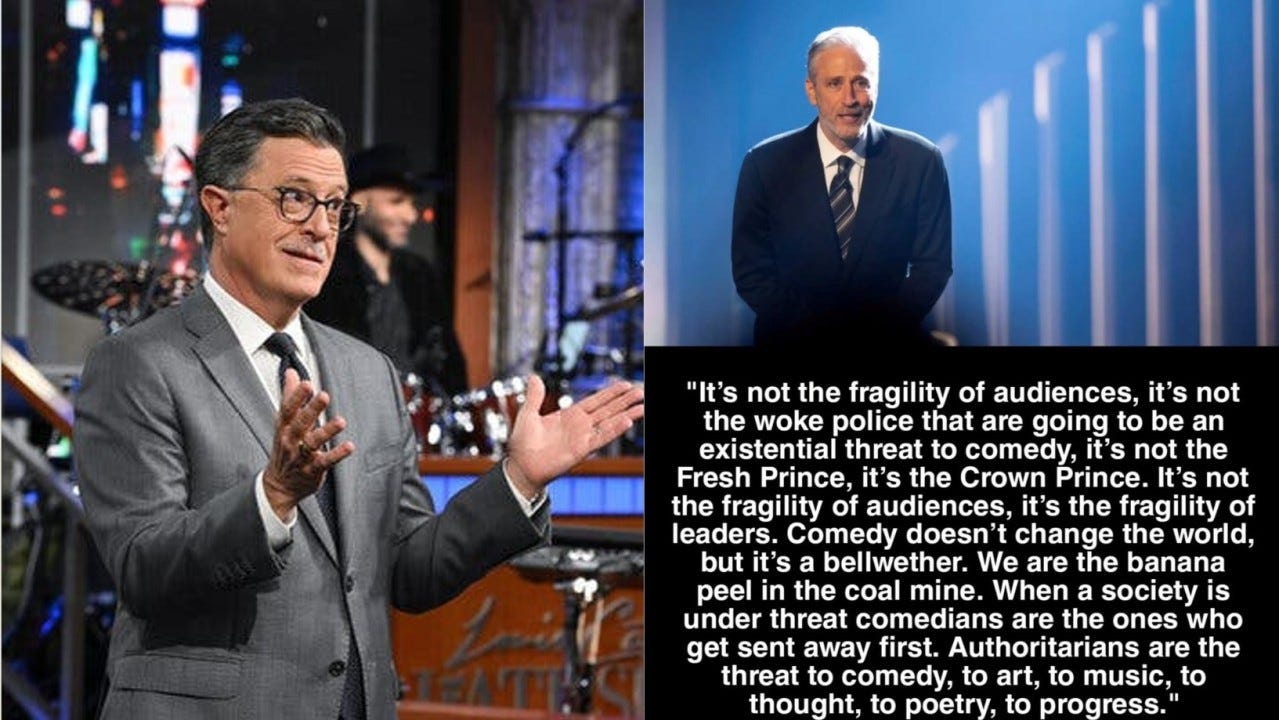Truthiness: The Cultural Metrics We’re Too Afraid to Measure
When the Satirists Go Quiet
When ratings rise but the satirist disappears, it’s not about the numbers—it’s about who can no longer tolerate the signal.
When the Satirists Go Quiet
Stephen Colbert’s “retirement” wasn’t just a business decision. It was a bellwether—a sign of who holds power, and who gets punished for pointing at it.
We often treat these transitions as creative pivots or personal choices. But when satirists go quiet while still leading in the rankings, it’s worth asking what kind of silence we’re really witnessing.
What the Metrics Didn’t Say
Colbert didn’t leave because the audience vanished, the jokes fell flat, or the format ran dry. He was number one. His show was working.
But audience engagement wasn’t the metric that mattered most. The real performance indicator? Executive risk tolerance.
What kinds of questions were being asked? Whose discomfort was surfacing? And how close were those questions getting to the people who fund, regulate, or advise the network?
There’s no spreadsheet column for narrative containment. But make no mistake: it’s being monitored.
Data Is Not Neutral
We often discuss data as if it were objective, comprehensive, and conclusive. However, most metrics reflect structural permission, rather than cultural resonance. They measure what’s allowed, not what’s needed.
Ratings tell us who’s watching. They don’t tell us who’s uncomfortable. They don’t tell us whose influence is being quietly recalibrated behind the scenes. And they certainly don’t tell us who decided the risk of a sharp voice outweighed its value.
The most meaningful signals rarely show up on a dashboard.
The Mechanics of Cultural Discipline
When governance fails—not in law, but in institutional courage—culture doesn’t descend into chaos. It becomes compliant.
And compliance doesn’t require force. It just needs a plausible story.
The tools of cultural discipline aren’t crackdowns or bans. They’re subtler:
Budget reshuffles
Programming changes
Strategic retirements
PR messaging about “evolving audiences”
It looks like innovation. It sounds like optimization. But it’s containment. A quiet reabsorption of critique into a system that no longer tolerates being examined.
Plausible Deniability Isn’t Accountability
You don’t cancel the show. You sunset it. You don’t fire the host. You “make room” for new voices. You don’t silence dissent. You say it’s time to move on.
And because the language is clean—because it mimics the language of growth—it’s hard to name what’s actually happening.
There’s no visible suppression. But you can feel it:
The edges get duller.
The jokes pull back.
The stories that once challenged power start to orbit it instead.
The Risk of Quiet Compliance
This is the real cost of governance failure: not outrage or instability, but subtle self-censorship. A culture that learns, bit by bit, to stop asking real questions—not because it’s forbidden, but because it knows the price of being inconvenient.
Colbert didn’t become irrelevant. He became incompatible with a structure that couldn’t afford his clarity, wit, and timing right now.
So if a voice like his disappears, don’t ask if the show was profitable. Ask who felt threatened by what he revealed. I'll ask that again: who else felt threatened by what he revealed?
The Data We’re Not Measuring
We continue to optimize for the wrong things. Engagement over discomfort. Performance over integrity. Safety over substance.
But the most important metrics are the ones we haven’t figured out how to quantify:
Who benefits from a quieter stage?
Who sets the threshold for acceptable critique?
And who gets to call containment “strategy”?
If a society starts sidelining its satirists, we shouldn’t ask what’s wrong with comedy.
We should ask: Who benefits from the silence? And what kind of data is being used to justify it?
Recommend This Newsletter
If this sparked a pause, share it with someone still trying to hold their complexity in a world that keeps asking them to flatten it. Lead With Alignment is written for data professionals, decision-makers, and quietly courageous change agents who believe governance starts with remembering.


